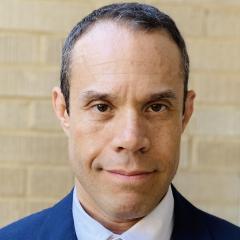Jesse Brown VA Post-Acute Sequelae of COVID-19 (Long COVID) Program
The goal of the Jesse Brown Long COVID clinic is to provide individualized care from multiple disciplines to Veterans experiencing prolonged impaired function due to new or worsening symptoms related to COVID-19 illness lasting more than 12 weeks in duration. The ultimate goal is to improve symptom severity and quality of life in our Veteran patients.
Frequently Asked Questions about Long COVID
Long COVID has many names, which are all used interchangeably:
- Post-COVID-19
- Post-Acute Sequelae of COVID-19
- Long-Haul COVID
- Chronic COVID
All these names use the same definition: Some people can have ongoing or new symptoms after having COVID-19 that do not go away or get worse over time. If you have new or worsening symptoms 4-12 weeks after having COVID-19, you may be experiencing long COVID.
Mild or moderate COVID-19 lasts about two weeks for most people. But others experience lingering health problems even after the fever and cough go away and they are no longer testing positive for the illness.
The World Health Organization has developed a definition for post-COVID-19 condition (the WHO’s term for long COVID) as coronavirus symptoms that persist or return three months after a person becomes ill from infection with SARS CoV-2, the coronavirus that causes COVID-19. Those symptoms can involve nearly every organ system, and most commonly include:
- Fatigue
- Shortness of breath
- Cognitive problems (attention to thinking and memory)
- Pain and headaches
- Sleep and mood problems
The symptoms can come and go, but have an impact on the person’s everyday functioning, and cannot be explained by another health problem.
Anyone who has had COVID-19 can develop long COVID, no matter how mild or severe their symptoms were. At this time, it is estimated that 4-7% of those diagnosed with COVID-19 will develop long COVID. Women are more likely to get long COVID than men.
The best way to avoid post-COVID-19 complications is to prevent infection with the coronavirus in the first place. Practicing coronavirus precautions and staying up to date with COVID-19 vaccines and boosters are effective ways to avoid getting COVID-19.
To schedule your COVID vaccine or booster, visit https://www.va.gov/chicago-health-care/programs/covid-19-vaccines/.
- Breathing Issues - A bad case of COVID-19 can produce scarring and other permanent problems in the lungs, but even mild infections can cause persistent shortness of breath — getting winded easily after even light exertion.
Lung recovery after COVID-19 is possible but takes time. Experts say it can take months for a person’s lung function to return to pre-COVID-19 levels. Breathing exercises and respiratory therapy can help.
- Heart Problem – COVID -19 can leave some people with heart problems, including inflammation of the heart muscle. In fact, one study showed that 60% of people who recovered from COVID-19 had signs of ongoing heart inflammation, which could lead to the common symptoms of shortness of breath, palpitations and rapid heartbeat. This inflammation appeared even in those who had had a mild case of COVID-19 and who had no medical issues before they got sick. Additionally, some survivors of Covid-19 seem to have a higher chance of developing heart disease down the road.
- Kidney Damage - If the coronavirus infection caused kidney damage, this can raise the risk of long-term kidney disease and the need for dialysis.
- Loss of Taste and Smell- The senses of smell and taste are related, and because the coronavirus can affect cells in the nose, having COVID-19 can result in lost or distorted senses of smell (anosmia) or taste. Before and after people become ill with COVID-19, they might lose their sense of smell or taste entirely, or find that familiar things smell or taste bad, strange or different.
For about a quarter of people with COVID-19 who have one or both of these symptoms, the problem resolves in a couple of weeks. But for most, these symptoms persist. Though not life-threatening, prolonged distortion of these senses can be devastating and can lead to lack of appetite, anxiety and depression. Some studies suggest that there’s a 60% to 80% chance that these people will see improvement in their sense of smell within a year.
- Cognitive Problems and Mental Health – Some individuals can develop new or worsening anxiety, depression, or cognitive problems, described as brain fog.
Cognitive impairment after acute coronavirus infection can have a severe impact on a person’s life. Long-haul COVID patients may experience changes in the way they think, concentrate, communicate and remember, and these symptoms can affect their ability to work or even maintain activities of daily living.
After recovering from the coronavirus, some people are left with lingering anxiety, depression and other post-COVID mental health issues. Physical changes such as pain and weakness can be complicated by long periods of isolation, stress from job loss and financial difficulties, and grief from the deaths of loved ones and the loss of good health.
- Post-Intensive Care Syndrome—Patients who were hospitalized for COVID-19 treatment have a particularly challenging recovery. Experts note that post-intensive care syndrome, or PICS, puts COVID-19 survivors and other people who have spent time in the ICU at a higher risk for problems with mental health, cognition and physical recovery.
Prolonged time in the ICU can cause delirium. The strange surroundings, multiple mind-altering medications, isolation and loss of control can leave patients with lasting and recurrent sensations of terror or dread, including post-traumatic stress disorder (PTSD).
- POTS and Insomnia -Postural orthostatic tachycardia syndrome, or POTS, is a condition that affects blood circulation, and people who have survived COVID-19 may be more vulnerable to it. POTS can leave survivors with other neurologic symptoms, including continuing headache, fatigue, brain fog, difficulties in thinking or concentrating, and insomnia.
Persistent post-COVID-19 insomnia is an increasingly common complaint among COVID-19 survivors and can be a typical symptom of POTS.
- Diabetes - The relationship between COVID-19 and diabetes, especially type 2 diabetes, is complex. Type 2 diabetes is a risk factor for serious cases of COVID-19, and some survivors of the illness seem to be developing type 2 diabetes signs after they recover from COVID-19.
Long-term COVID-19 symptoms can be similar to signs of other disease, so it is important to see your primary care doctor and rule out other problems, such as heart or lung problems.
If your COVID-19 symptoms have continued for 12 weeks or more after your initial diagnosis, see your primary care doctor to discuss long COVID.
If you experience new chest pain, difficulty breathing, bluish lips or any other sign of a life-threatening problem, call 911 or emergency services right away.
Meet the physicians and specialists that make up the Jesse Brown Long COVID Clinic.

Jacqueline Neal MD
Physical Medicine and Rehabilitation Physician
VA Chicago health care

Roshni Patel MD, MS
Neurology Attending Physician
VA Chicago health care

Eric Proescher PsyD, MPH
Senior Clinical Psychologist
VA Chicago health care

Travis Yamanaka MD
Pulmonary and Critical Care Medicine Physician
VA Chicago health care
Bonnie Yap Ph.D.
MOVE! Coordinator
VA Chicago health care
Additional physicians and specialists that make up the Jesse Brown Long Covid Clinic:
Physical Medicine and Rehabilitation:
Patrick Barrett, MD
Peter Hurh, MD
Peter Hwang, MD
Cardiology:
Mark McCauley, MD
Neurology:
Carolyn Bevan, MD
Michael Carrithers, MD
Psychology:
Sarah Catanese, PhD
Neuropsychology:
Lauren Rog, PhD
Speech Language Pathology:
Lindsey Ginsberg, SLP
Rachel Kesler, SLP
Occupational Therapy/Aromatherapy:
Julie Seltzer, OT
How can I be referred to Jesse Brown’s Long COVID clinic?
You can get a referral to Jesse Brown’s Long COVID clinic from your primary care provider, a specialist clinic, or the inpatient services upon discharge from the hospital. We also accept requests from Tomah, Lovell, and Hines VA facilities.
How does the Jesse Brown Long COVID clinic work?
- Patients are offered telehealth (VVC) or in-person visits pending their preference. Patients are seen Monday-Friday 8am-3pm
- When you attend your visit, multiple standardized screening questions will be asked. Based on answers to these questions, other specialties will be consulted to add the necessary specialists to the team for individualizing your care.
- Together, we will develop a treatment plan focused on helping you reach your specific goals.
- A team approach is necessary for helping you to feel better. For this reason, our team meets regularly so that we can work together to help you reach your goals.
- COVID Registry: Jesse Brown VA maintains an anonymous registry to collect data on individuals who were diagnosed with COVID-19 and who are seen for follow up care at Jesse Brown VA. We hope to understand the natural history of the illness and ultimately improve the care and outcomes of those who were treated for COVID-19 to improve understanding, treatment and survival, including those who go on to develop long COVID.
Patient Testimonials
Coming soon!
